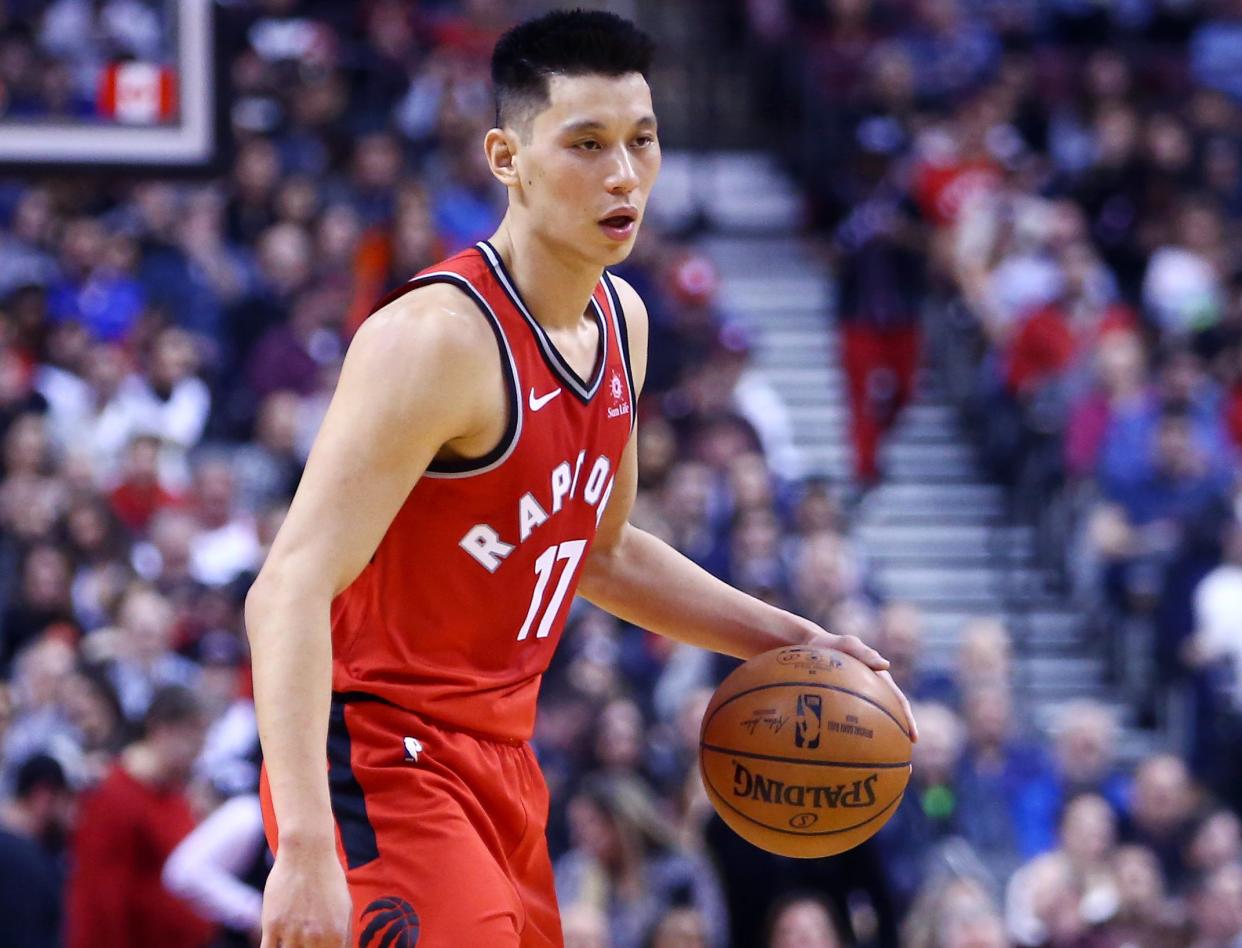Why 'Linsanity' Was A Major Turning Point For Jeremy Lin's Asian-American Identity

Jeremy Lin has long been heralded as a pioneer for the Asian-American community. And he’s become increasingly proud of those roots.
The Toronto Raptors guard sat down with the “At Large with Alex Wong” podcast for an interview that was released last week. In the revealing exchange, he reflects on his relationship with his Chinese culture.
“I feel like as I’ve gotten older, I’ve begun to embrace more and more of this Asian-American side of me,” he said on the podcast. “And in doing so, I’ve learned a lot and seen a lot ― going through ‘Linsanity’ and everything afterwards.”
Lin told host Alex Wong that he’s done quite a bit of work, reconnecting with his roots, particularly through trips to Taiwan and China. The athlete, who has spent summers in Asia, said that spending more time immersed in Chinese culture has given him a deeper appreciation for his roots. He noted that he’s better understood why he values familial piety and politeness ― concepts deeply ingrained in the culture.
“As I pick up more and more of the intricacies of Chinese culture even now, we’re doing a lot of business, and we’re doing a lot of different things ... being in those situations, I get a deeper understanding of my roots and also why I am the way I am, why I think the way I think,” he said.
He added that, “the more time I spend over there, the more I really understand my parents and my upbringing.”
Lin admitted that early on in his career, he wasn’t comfortable about speaking out on Asian-American issues.
“I ran from it because that’s all anyone ever wanted to assign me to ― ‘oh my goodness you’re not just a basketball player, you’re an Asian basketball player.’ and that’s all anyone could ever talk about Asian, Asian, Asian. I was like dude, I want you to respect me for my basketball.”
In 2012, Lin’s winning spree while he was with the Knicks led to a global obsession with the basketball star that fans dubbed “Linsanity,” and this period proved to be a major turning point in his life.
“Seeing the way the world handled that and just how not ready the world was for Asians to be on the scene in mainstream sports and to see Asian-American masculinity and the misconceptions of Asian people just constantly being thrown out there ― it left me with a heavier heart,” he said. “I was like, ‘you know what I need to say something, I need to do something.’ That was something for me. This is my development; this is my growth as a person off the court.”
The Raptors guard has become increasingly vocal about Asian-American issues. A few years back, he also opened up about the racism he encountered while a Harvard University basketball player. He revealed that the worst racist experience he endured was at Cornell University, where he was called the racial slur “chink.”
“I ended up playing terrible and getting a couple of charges and doing real out-of-character stuff,” Lin told Randy Foye’s podcast, “Outside Shot” back in 2017. “My teammate told my coaches, ‘They were calling Jeremy a chink the whole first half.’ I didn’t say anything, because when that stuff happens, I kind of just, I go and bottle up ― where I go into turtle mode and don’t say anything and just internalize everything.”
He also recalled that someone at Georgetown yelled out “chicken fried rice,” “beef lo mein” and “beef and broccoli” throughout the game, while during a game in Vermont, the opposing coach had even called Lin “oriental” when speaking to the referee as players joined in, calling him “chink.”
The referee failed to do anything.
During a Q&A session with a fitness vlogger, Lin also got real about the negative stereotypes attached to Asian men and their masculinity. He explained that during the 2010 NBA draft, he saw a major difference between how he and John Wall were described.
“Me and John Wall were the fastest people in the draft, but he was ‘athletic’ and I was ‘deceptively athletic,’” Lin said. “I’ve been deceptively ‘whatever’ my whole life.”
Wall ended up getting becoming the first round’s No. 1 draft pick, while Lin was not drafted at all.
Love HuffPost? Become a founding member of HuffPost Plus today.
This article originally appeared on HuffPost.

